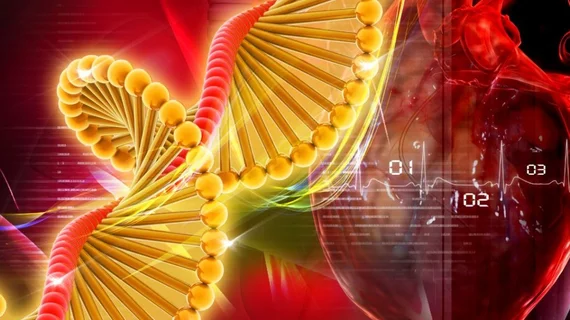Gene editing slashes cholesterol in monkey study
A team of researchers used genome editing to inactivate the PCSK9 protein in the livers of rhesus macaque monkeys, resulting in 30 to 60 percent reductions in LDL cholesterol and even more significant drops in PCSK9 levels.
The authors of the paper, published July 9 in Nature Biotechnology, said the trial could pave the way for in-human studies of the technique.
PCSK9 inhibitors such as evolocumab have been shown to lower LDL cholesterol among high-risk patients with hypercholesterolemia. But some patients can’t tolerate the drugs, which are extremely costly and have been burdened with high prior authorization barriers by insurance companies.
"Most often these patients are treated with repeated injections of an antibody to PCSK9," lead author Lili Wang, PhD, a research associate professor at the University of Pennsylvania School of Medicine, said in a press release. “But our study shows that with successful genome editing, patients who cannot tolerate inhibitor drugs might no longer need this type of repeat treatment.”
Biotech scientists engineered an enzyme called a meganuclease which was designed to recognize and block the PCSK9 gene. It was infused via an adeno-associated virus (AAV) vector, a DNA delivery option that has proven safe in early gene replacement therapy trials.
The monkeys treated with middle- and high-dose AAV vectors showed reductions in PCSK9 levels of 45 to 84 percent. The 30 to 60 percent drops in LDL cholesterol were also “clinically relevant and stable reductions,” according to the release.
"Our initial work with several delivery and editing approaches produced the most impressive data in non-human primates when we paired AAV for delivery with the engineered meganuclease for editing,” said senior author James M. Wilson, MD, PhD, a professor of medicine and pediatrics at Penn, as well as the director of its Gene Therapy Program.
“We leveraged our 30-plus years of experience in gene therapy to progress the translational science of in vivo genome editing, and in doing so, reinforced the importance of early studies in nonhuman primates to assess safety and efficacy.”
The introduction of the transgene product triggered a transient, asymptomatic elevation in liver enzymes resulting from an immune response, the researchers noted. They said future studies will look at ways to curb the immune toxicity and limit the editing that occurs outside of the desired site within the PCSK9 gene.

